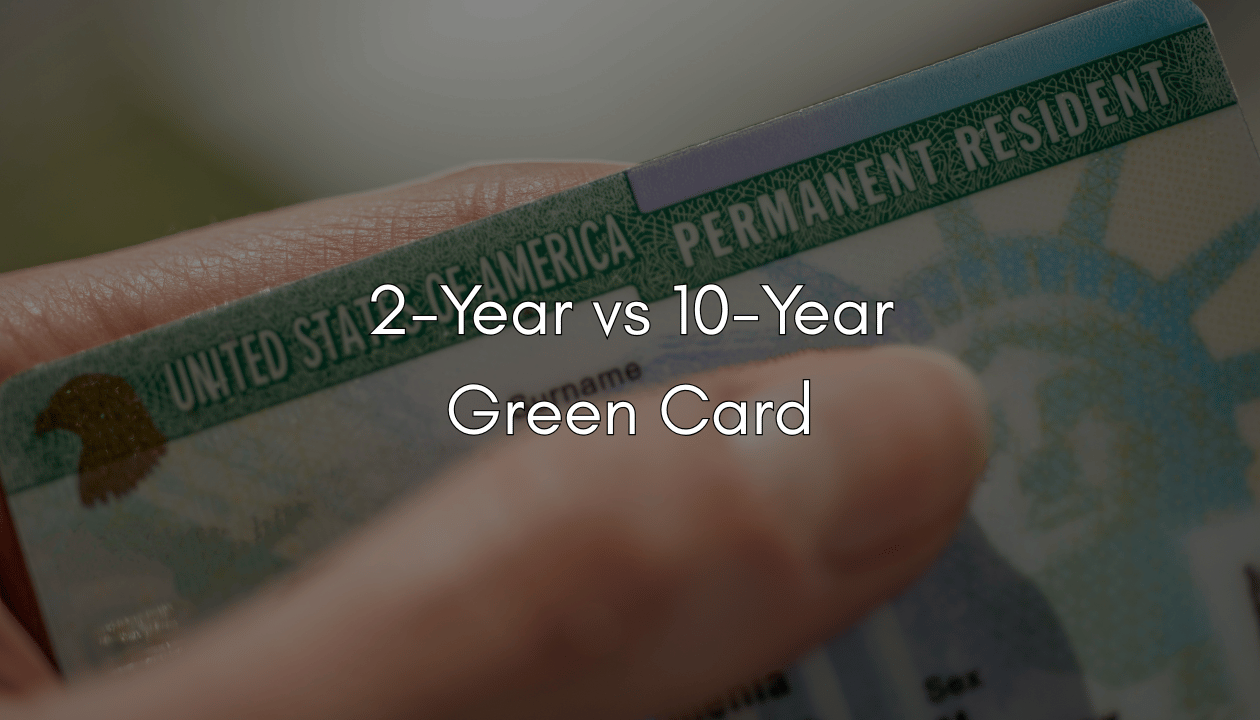Receiving a conditional green card is a significant step toward permanent residency—but it’s not the final one. If you received your green card through marriage and it’s valid for two years, you must file to remove the conditions before it expires.
This next step—filing Form I-751—can feel overwhelming. Unfortunately, even small mistakes can lead to delays, denials, or even removal proceedings.
We’ve worked with countless clients who made avoidable errors before contacting us for help. That’s why, at The Chidolue Law Firm, we believe in preparing our clients correctly from the start so they can confidently secure their permanent resident status.
Let’s walk through the most common mistakes—and how to avoid them.
Mistake 1: Filing Late Without a Valid Reason
Timing matters. Form I-751 must be filed within the 90-day window before your conditional green card expires. Missing this deadline without a strong reason and proper documentation can lead to serious consequences, including removal proceedings.
USCIS does allow late filings, but only under limited conditions. You must provide a written explanation with credible documentation showing the delay was due to extraordinary circumstances beyond your control.
Waiting too long or assuming you can explain it later puts your conditional permanent resident status at risk. The earlier you start preparing, the more time you have to avoid last-minute issues.
If you’re unsure about your filing timeline or think you’ve already missed it, it is time to get legal help before the situation worsens.
Mistake 2: Not Including Enough Evidence of a Real Marriage
One of the most common reasons for delays—or denials—is failing to show that your marriage was real and not entered into just for immigration benefits.
When you apply for removal of conditions, USCIS expects strong, detailed evidence that you and your spouse have built a life together. Submitting only a marriage certificate isn’t enough.
You should include:
- Joint financial records (bank accounts, tax returns, utility bills)
- Shared leases or mortgages
- Photos of you together across different occasions and timeframes
- Affidavits from family or friends confirming your relationship
- Travel records, insurance policies, and other documents that reflect daily life as a couple
Your application should reflect a bona fide marriage, built on more than paperwork. If you’re missing this kind of documentation, or aren’t sure what counts, legal support can help you identify what’s still needed—and how to present it effectively.
Mistake 3: Submitting the Wrong Form or Missing Signatures
It might seem like a simple step, but using the wrong version of Form I-751, forgetting to sign it, or leaving required fields blank are among the most common reasons applications are rejected before being reviewed.
USCIS has strict requirements. A missing signature, outdated form, or skipped section can result in a rejection, not a request for correction. This delays your case and could lead to lapses in your conditional permanent resident status.
Double-check that you are:
- Using the most current version of Form I-751 from the USCIS website
- Signing all required pages (both spouses, if filing jointly)
- Following the filing instructions exactly, including payment and documentation
The Chidolue Law Firm reviews every petition thoroughly to prevent these avoidable mistakes, as even minor oversights can have lasting consequences.
Mistake 4: Relying on Incomplete or Weak Documentation
When it comes to removing conditions, quality matters just as much as quantity. Submitting incomplete or inconsistent records can raise red flags and lead to a Request for Evidence (RFE) or outright denial.
Many applicants assume that a few shared bills or photos are enough. But if your documents don’t reflect a shared life and a good-faith marriage, your case may not hold up under scrutiny.
Common issues include:
- Documents with different addresses
- Financial records showing no joint accounts or responsibility
- Photos that look staged or are too few
- Missing birth certificates for shared children (if applicable)
USCIS wants a clear, consistent picture of your relationship, not just a few disconnected pieces. A strong submission includes credible evidence showing legal and emotional commitment over time.
We help clients compile and present complete, well-organized files that tell their stories correctly before any issues arise.
Mistake 4: Relying on Incomplete or Weak Documentation
When it comes to removing conditions, quality matters just as much as quantity. Submitting incomplete or inconsistent records can raise red flags and lead to a Request for Evidence (RFE) or outright denial.
Many applicants assume that a few shared bills or photos are enough. But if your documents don’t reflect a shared life and a good-faith marriage, your case may not hold up under scrutiny.
Common issues include:
- Documents with different addresses
- Financial records showing no joint accounts or responsibility
- Photos that look staged or are too few
- Missing birth certificates for shared children (if applicable)
USCIS wants a clear, consistent picture of your relationship, not just a few disconnected pieces. A strong submission includes credible evidence showing legal and emotional commitment over time.
We help clients compile and present complete, well-organized files that tell their stories correctly before any issues arise.
Mistake 6: Not Updating USCIS About Address Changes or Case Updates
It may seem minor, but failing to update your address with USCIS can cause significant delays—or worse, missed deadlines. Important documents like your receipt notice, biometrics appointment, or a Request for Evidence (RFE) are sent to the last address on file.
If you don’t receive a notice and fail to respond, your case could be denied or referred to removal proceedings.
Other updates USCIS should be informed of include:
- Changes in marital status (such as divorce or legal separation)
- New supporting evidence you’d like to add to your petition
- Any shift in the basis of your filing (for example, from a joint petition to a waiver)
You can use Form AR-11 to report an address change, but knowing when and how to report other updates is where legal guidance makes all the difference.
Mistake 7: Not Seeking Legal Help Early Enough
Many people wait until they receive a denial or a Request for Evidence before contacting a lawyer, but it may be harder to fix what went wrong by then.
From understanding whether to file jointly or request a waiver, strong evidence is knowing what is strong evidence, and immigration law is full of details that can easily be overlooked. And USCIS doesn’t give second chances lightly.
Working with an experienced immigration attorney from the start can:
- Ensure your petition is accurate, complete, and compelling
- Help you prepare for possible issues before they arise.
- Reduce your chances of delay, denial, or removal proceedings.
At The Chidolue Law Firm, we’ve helped clients in all process stages—from the first draft to last-minute rescues after denials. But the earlier you reach out, the better your outcome can be.
Why Legal Support Makes All the Difference
Applying for removal of conditions on your green card isn’t just a formality—it’s a crucial step in securing your permanent resident status. And it’s one of the most common places where avoidable mistakes can lead to serious consequences.
When you work with The Chidolue Law Firm, you’re not just getting help with paperwork—you’re gaining a team that:
- Reviews every detail of your petition
- Ensures your supporting documents clearly show a good-faith marriage
- Advises you on waivers, timelines, and how to avoid red flags
- Stands by you in case of a USCIS interview, RFE, or follow-up inquiry
We believe in getting it right the first time—because there’s no room for guesswork when it comes to your future.
Let Us Help You Move Forward with Confidence
If you’re preparing to file for removal of conditions, don’t leave your future to chance. Whether you’re filing jointly, requesting a waiver, or unsure where to begin, our team guides you every step of the way.
At The Chidolue Law Firm, we help clients avoid common pitfalls and build strong, complete I-751 petitions that stand up to scrutiny.
📞 Call today for a personalized case review:
➡ 407-995-6567
➡ 678-325-1037
💬 Message us on WhatsApp:
➡ 404-333-8751
With the proper support, you can secure your path to lawful permanent residency and peace of mind.



